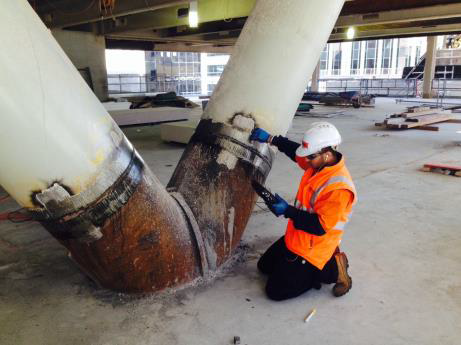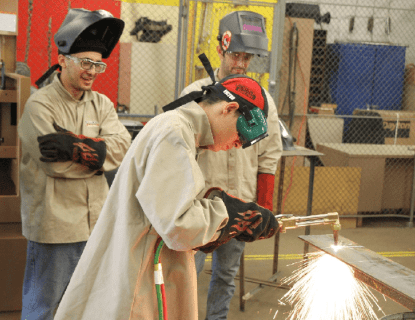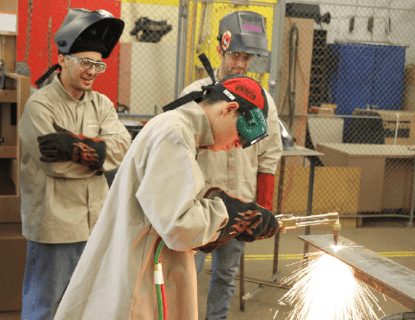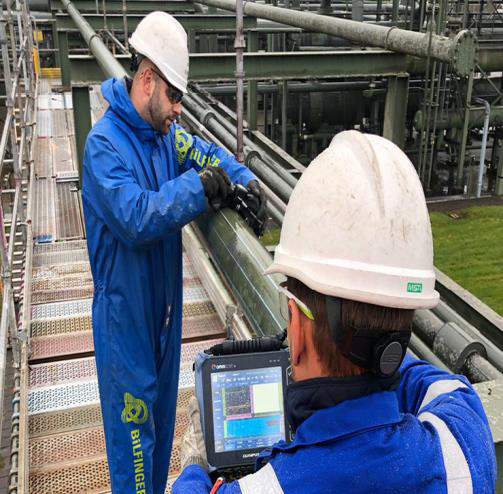COURSE OVERVIEW
FE0320 : Metallurgy, Corrosion and Prevention of Failures: Material Selection and Properties

OVERVIEW
| COURSE TITLE | : | FE0320 : Metallurgy, Corrosion and Prevention of Failures: Material Selection and Properties |
| COURSE DATE | : | Feb 23 - Feb 27 2025 |
| DURATION | : | 5 Days |
| INSTRUCTOR | : | Mr. George Poulos |
| VENUE | : | Al Khobar, KSA |
| COURSE FEE | : | $ 5500 |
| Register For Course Outline | ||
Course Description
This practical and highly-interactive course includes various practical sessions and. Theory learned will be applied using our state-of-the-art simulators.
Metallurgy: this section of the course discusses metals and the metallurgical characteristics of various metals. It provides an explanation of physical characteristics of metals, including the reason metals behave differently than non-metals. This section of the course also explains how and why different metals are selected for specific environmental purposes, including resistance to wear, corrosion, heat, cold, repeated stress, and impact. This is a lecture and problem-solving section that also deals with the metallurgical aspects of welding. Emphasis will be placed on mechanical metallurgy, materials selection, and the fundamentals of welding technology, welding metallurgy, inspection and quality of welds.
Corrosion: this section of the course focuses on the fundamentals of corrosion as well as the potential problems caused by corrosion. It provides a review of the causes of corrosion and the methods for identification, monitoring and control. An understanding of corrosion and its control is vital for any company hoping to avoid the high costs that can be directly or indirectly attributed to corrosion. This section of the course also presents fundamental principles of corrosion and assists participants in recognizing corrosion problems, determining their causes, and understanding and selecting control methods. Emphasis is on the practical applications of corrosion technology to solve industrial corrosion problems.
Prevention of failures: this section of the course is concerned with the prevention of failures, the assessment of the state of damage in plant and equipment, and the use of failure analyses, inspection data, and operating history in predicting safe operating life or determining necessary remedial measures. Maintenance requirements, risk-based inspection (RBI) procedures, and the fitness-for-service (FFS) approach will be discussed along with the various mechanisms leading to damage and potential failure, mechanisms of accumulation, and predictive methods.
link to course overview PDFTRAINING METHODOLOGY
This interactive training course includes the following training methodologies:
LecturesWorkshops & Work Presentations
Case Studies & Practical Exercises
Videos, Software & Simulators
In an unlikely event, the course instructor may modify the above training methodology for technical reasons.
VIRTUAL TRAINING (IF APPLICABLE)
If this course is delivered online as a Virtual Training, the following limitations will be applicable:
| Certificates | : | Only soft copy certificates will be issued |
| Training Materials | : | Only soft copy materials will be issued |
| Training Methodology | : | 80% theory, 20% practical |
| Training Program | : | 4 hours per day, from 09:30 to 13:30 |
RELATED COURSES

FE0430 : Welding Technology: ASME IX Welding, Fabrication, Brazing, Inspection & Fusing Qualification
- Date: Feb 24 - Feb 28 / 3 Days
- Location: London, United Kingdom
- Course Details Register

FE0320 : Metallurgy, Corrosion and Prevention of Failures: Material Selection and Properties
- Date: Feb 23 - Feb 27 / 3 Days
- Location: Al Khobar, KSA
- Course Details Register

FE0430 : Welding Engineering and Technology: ASME IX Welding, Fabrication, Brazing, Inspection & Fusing Qualification
- Date: Feb 24 - Feb 28 / 3 Days
- Location: London, United Kingdom
- Course Details Register

FE0762 : Acoustic Emission Testing Level II Training & Certification (ASNT's, SNT-TC-1A)
- Date: Feb 23 - Feb 27 / 3 Days
- Location: Kuala Lumpur, Malaysia
- Course Details Register
